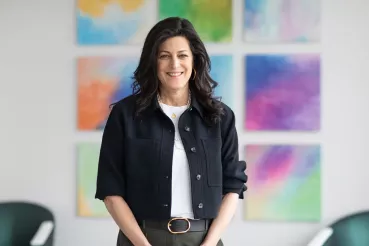If you or a loved one has been diagnosed with cancer, you may want to get a second opinion — even though you may feel uncomfortable talking to another doctor or not want to go through the hassle.
Why? Because talking to another specialist helps empower you to make decisions about your care based on fully understanding all of your options.
Here’s when a second opinion is a good idea:
- You feel uncertain about the proposed treatment.
- You think your doctor may underestimate the seriousness of your illness.
- You want to confirm your diagnosis.
- You want to make sure you have learned about all available treatment options.
- You are not comfortable with your doctor.
The following tips will help guide you through this important process.
Is there time to get a second opinion?
Understandably, you may feel like your diagnosis of cancer is a medical emergency. But in reality, there’s almost always time to get a second opinion. Your doctor can tell you how quickly your cancer needs to be addressed.
Before you start treatment: If your cancer doesn't have to be treated immediately, try to get a second opinion before you start your first treatment. Another doctor or hospital may have options, such as new therapies available through clinical trials, that are better for you.
How to get started seeking a second opinion
Talk to your doctor: Begin by telling your doctor that you want to get a second opinion. Cancer patients commonly seek a second opinion and some health plans actually require one, especially when a doctor recommends surgery or an experimental therapy.
Some people may not feel comfortable talking to their doctor about getting another opinion. To make discussing the issue easier, tell your doctor that you are satisfied with his or her treatment plan and care, but that you want to ensure you are thoroughly informed about all available treatment options. It may help to bring a family member or friend along for support when you have the conversation.
Get copies of your medical records: Ask your doctor for copies of your medical records, original X-rays, and lab and test results so you can take them with you on your first visit for a second opinion. You can also have the new doctor's office request your records from your primary doctor if that is more convenient. Some hospitals enable patients to have access to their own medical records, as Rush does with MyChart.
It's a good idea to request copies of your medical records even if you don't plan to seek a second opinion, in case of an emergency. Note: Your doctor's office may charge a small fee to copy the records.
Timing: It shouldn't take more than a week for a doctor's office to obtain records from your doctor and schedule you for a second opinion appointment. It may take even less time if you plan to bring your medical records to the appointment rather than asking your primary doctor to forward them.
If you have to wait more than a week or two to see a doctor for a second opinion, you may want to find someone else.
Cancer patients commonly seek a second opinion and some health plans actually require one, especially when a doctor recommends surgery or an experimental therapy.
Looking into insurance issues
Check your insurance coverage: Before you schedule your second opinion appointment, contact your insurance company to find out what your policy covers. You may be required to get a second opinion from a doctor who is associated with your plan, and your insurance company may be able to provide you with a list of approved specialists.
If you don’t have insurance: If you don't have health insurance, find out whether the hospital where you plan to get your second opinion has options to help offset the cost of cancer care. Many hospitals will help patients apply for Medicaid, offer payment plans or have charity care provisions. Some hospitals, including Rush, have dedicated staff available to help patients deal with insurance-related or other financial assistance issues.
How to find where to go for a second opinion
Ask for a recommendation: The best person to recommend a doctor for your second opinion is your oncologist. If you don't have an oncologist, ask your primary care doctor. He or she should be able to give you the name of at least one specialist who has experience treating people with your diagnosis, even if it means sending you to another hospital or facility.
Look for Commission on Cancer approval: A good way to judge the quality of cancer care at a treatment facility is to find out if it has been approved by the Commission on Cancer, a program of the American College of Surgeons. If it has, you know that it offers a range of cancer care services and is committed to providing the best in state-of-the-art diagnosis and treatment. To find a Commission on Cancer-approved facility, look for the treatment center locator on the American Cancer Society website or call the American Cancer Society at (800) 227-2345.
Talk to a physician referral specialist: Some hospitals, like Rush, have physician referral services available by phone or online. These allow you to learn more details about the doctors in your area, such as their areas of expertise, medical certifications, office locations, languages spoken and so on. You can find these referral services through many hospitals, or ask your primary care doctor about them.
What to look for when picking the right doctor and other clinicians
Seek experience with specific cancers: Look for specialists who have experience treating your type of cancer, especially if you have one of the rarer cancers. Your oncologist or primary care doctor may also be able to tell you which specialists are among the leading experts for your type of cancer.
Larger institutions, including academic medical centers such as Rush, will have more experience with rare or complex cancers than community hospitals. Studies have shown that the more experience doctors have treating a specific condition, the more successfully they are able to treat it.
The best way to determine whether doctors have experience is to ask them the following:
- How long have you been treating patients with my diagnosis?
- How many people with this type of cancer have you treated total?
- How many people with this type of cancer do you treat per year?
Look for the right fit: If possible, based on insurance and how quickly you need treatment, schedule appointments to interview several doctors. This will enable you to choose a doctor for your second opinion based on which doctor is the best fit.
To help you determine who is the best fit for you, you may wish to ask them some of the following questions:
- Are you board certified?
- How long have you been in practice?
- Which treatments do you offer, including clinical trials that may be right for me? (This is particularly important if you have read about a specific type of treatment that you wish to know more about.)
- What are your office hours?
If you are meeting with surgeons, ask them the following:
- How often do you perform the type of surgery recommended for me?
- Approximately how many have you performed in your career?
- What is your success rate (and what constitutes “success” in your opinion)?
- Are there any alternatives, such as minimally invasive procedures, that may be right for me?
Pay attention to other clinicians as well: In addition to finding the right doctor for your second opinion, make sure you are comfortable with the nurses, technicians and support staff. They will be the ones providing your day-to-day care, answering questions and helping you schedule appointments, deal with your insurance company, obtain prescription refills and other important issues.
Look for supportive services, too: Look for hospitals or facilities that offer comprehensive supportive services for cancer patients. For instance, Rush has a patient navigator who meets with patients and family members to assess individual needs and provide vital support, including information about available treatments, community services and programs. Patients also have access to integrative therapies that complement their medical treatments, such as acupuncture, massage, and herbal and nutritional counseling.
You may also want to learn about the availability of specialized psychotherapy for cancer patients (known as psychosocial oncology) or cancer support groups for you and your family members.




